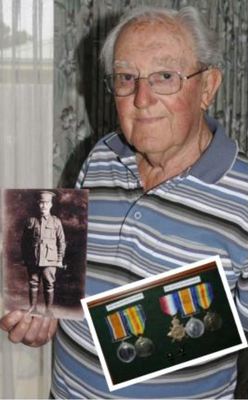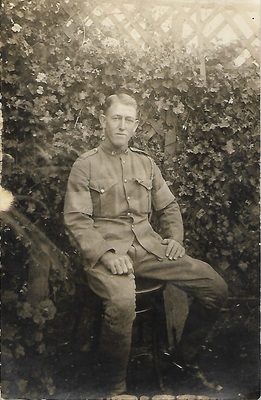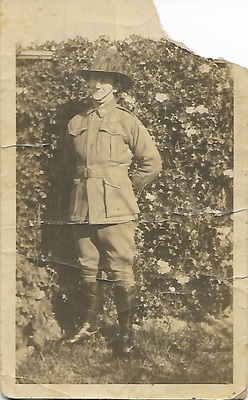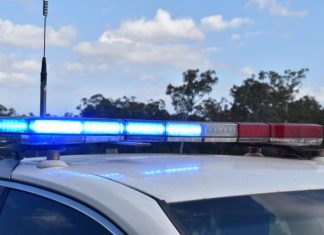
By Luke Voogt
Centenary of Armistice has double meaning for Ocean Grove’s Keith Hankin, whose father left the army on 11 November, 1918, after surviving a bullet to the head.
Trooper Walter Hankin was centimetres from death when a Turkish sniper shot him on 30 April, 1918, the same date Keith was born eight years later.
This Sunday Mr Hankin remembers his father, who fought for 9th Light Horse Regiment in the Middle East and grandfather William Hankin, who served in France.
“My thoughts on (my father’s) service and civilian life allow me to appreciate the sacrifice he and others made to provide for their descendants,” the 92-year-old said.
“Added to all this was the battle of living, particularly during The Great Depression of the 1930s.”
Walter suffered health and mental issues for many years after the war, Mr Hankin said.
“What I considered as odd ways or idiosyncrasies were no doubt the effects of post-traumatic stress disorder as we know it today.”
Walter told his son about the bullet hitting his head but missing his brain in a rare moment speaking about the war.
His troop was on foot and firing at the Turks from behind a rock, when Walter spotted his would-be killer to the right.
“He knew the sniper was about to fire because he saw his rifle come down,” Mr Hankin said.
“He remembered falling forward – his last memory was somebody grabbing his ankles and pulling him flat along the ground.”
Troopers Hankin’s war memoirs for a Melbourne newspaper chronicle miles of riding across deserts, with little sleep.
He was the first Australian in the war to capture an Austro-German officer, according to his commanding officer.
The man threw his hands up as Walter charged him down.
“I put my heels into my mare and went straight for the objective,” he wrote.
Walter wrote about a dismounted attack on a Turkish camp where his troop killed four and wounded seven, taking 30 prisoners.
“The bullets were flying around and I expected every moment my mare would be hit,” he wrote.
“When the bullets came too close she would just bob her head and flinch somewhat.”
Walter also wrote about a freak seven-yearly flood that left him “thunderstruck”, as a “chalk dry” gully became a large river in minutes.
Mr Hankin suspects his grandfather, then 44, lied about his age to enlist for World War I, and still wonders why.
“Only he knew,” he said.
Mr Hankin, a World War II veteran, played down his contribution maintaining planes in north Queensland for Australian pilots to fly against the Japanese.
“I was in the air force but it was nothing spectacular,” he said.









